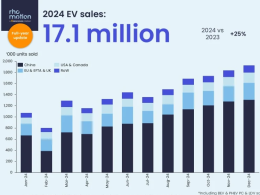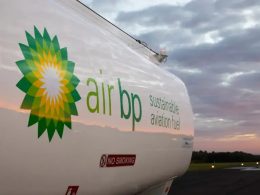The world’s first commercial-scale e-methanol plant has officially commenced operations in Kassø, southern Denmark, marking a significant step towards decarbonising the global shipping industry. Shipping giant Maersk is set to be a major customer, using the low-emission fuel to power its growing fleet of dual-fuel container ships.
Jointly developed by Denmark’s European Energy and Japan’s Mitsui, the €150 million ($167 million) facility will produce 42,000 metric tonnes—or 53 million litres—of e-methanol annually. The synthetic fuel is created using renewable electricity and captured CO₂ from biogas and waste incineration sources, offering a cleaner alternative to conventional methanol derived from natural gas or coal.
The maritime sector has come under increasing pressure to transition to cleaner fuels following broad international support for the International Maritime Organization’s goal of achieving net-zero emissions by 2050. However, zero-emission fuels like e-methanol and green ammonia remain costly due to limited production scale.
European Energy CEO Knud Erik Andersen said he expects price parity with fossil methanol to be reached around 2035. “We expect that we will have a price parity with fossil methanol around 2035,” he told Reuters, adding that plans are already in place to expand production in Europe, Australia, Brazil, and the United States.
Maersk, which currently operates 13 dual-fuel methanol container vessels and has another 13 on order, said the Kassø plant’s output is sufficient to fuel one large 16,000-container ship on a round-trip between Asia and Europe. Its smaller vessel, the Laura Maersk, which holds over 2,100 twenty-foot containers, requires just 3,600 tonnes of fuel annually and was scheduled to refuel near Kassø on Tuesday.
Beyond shipping, e-methanol from the facility will also be supplied to Danish companies including pharmaceutical firm Novo Nordisk and toy manufacturer Lego, which plan to use it in the production of injection pens and plastic components, respectively. Additionally, surplus heat generated by the plant will be used to heat approximately 3,300 local households. Maersk noted that cost remains one of the biggest barriers to transitioning to sustainable fuels and is investing in research into green technologies and energy-efficient shipping practices to address the challenge.

















